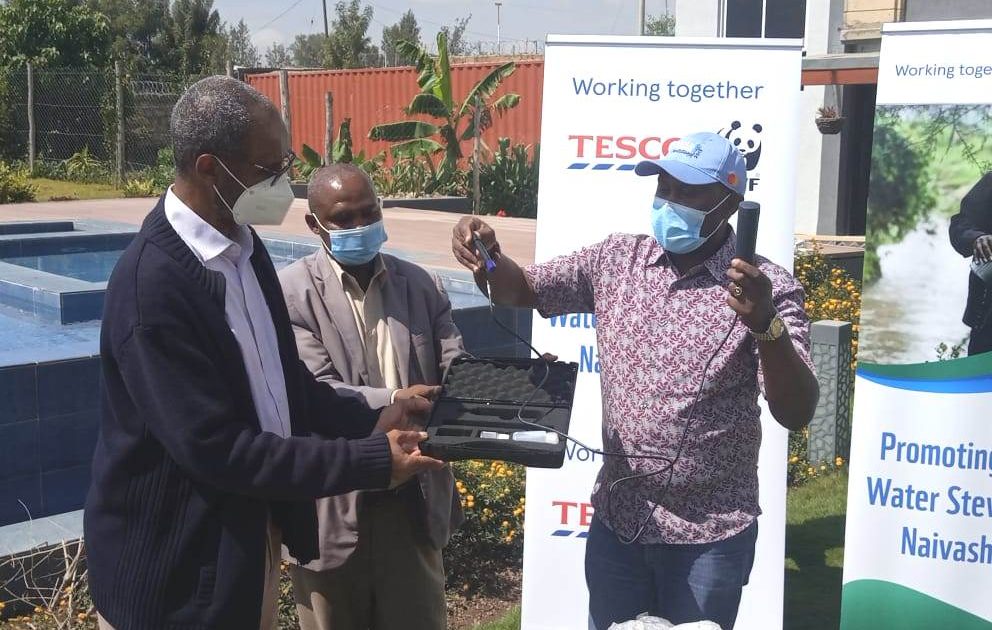A partnership started between government agencies and private players is expected to boost and strengthen water management systems in the Lake Naivasha Basin.
The joint project spearheaded by World Wide Fund [WWF] and TESCO, a leading horticultural outlet in the UK, aims to support government agencies to establish a citizen–led Naivasha Rivers Health Assessment framework in the basin to provide simple and accurate data on the water status.
According to WWF Chief Executive Officer, Mohammed Awer, the collection of data in the various water bodies will help establish the health of freshwater ecosystems in the basin that will inform better utilization of the resource.
Awer said the partnership with water key stakeholders, including the counties, tourism sector, riparian associations and others will ensure inclusive and collective action on water to reduce water stress and the associated risks to investments, biodiversity and community well-being in the basin.
Speaking during the donation of water quality assessment equipment to various water resources users’ associations in the basin, Awer said Naivasha being the heart of Kenya’s horticultural industry is dependent on the quality of water in the lake.
Awer said the equipment which includes scoping nets, sorting trays, dissolved oxygen meters, PH kits and turbidity tubes, will help the members of the associations to collect water data in the rivers within the Lake Naivasha Basin that will guide better decisions and policy interventions.
The CEO added that the data will help inform on the level of water management plan compliance by the various players within the basin.
“Knowledge and data of water abstractions and sources of pollution in the basin are needed to inform a management plan,” said Awer
Consequently, Awer said the water monitoring equipment will help to collect information on the level of pollution in the basin that will guide in the best mitigation measures and interventions to address the menace.
Awer said the citizen – science approach to data acquisitions by community-based organizations will help in better decision making and influence informed policies to address the challenges experienced within the basin.
On agricultural production within the basin, Awer said the sharing of knowledge and lessons with the various entities, will help inform better recommendations to sustainable production and better waste management approaches to reduce pollution.
On his part, Lake Naivasha Basin Association chairman, Enock Kiminta welcomed the support to equip them with necessary tools that will help to monitor the status of water health in the basin.
Kiminta said the tools will be key in unearthing the level of pollution in the water bodies in the basin, so as to hold the polluters in the upper catchment in the basin accountable.
By Erastus Gichohi and Calvin Osiemo





